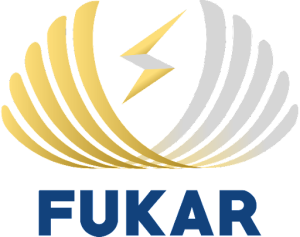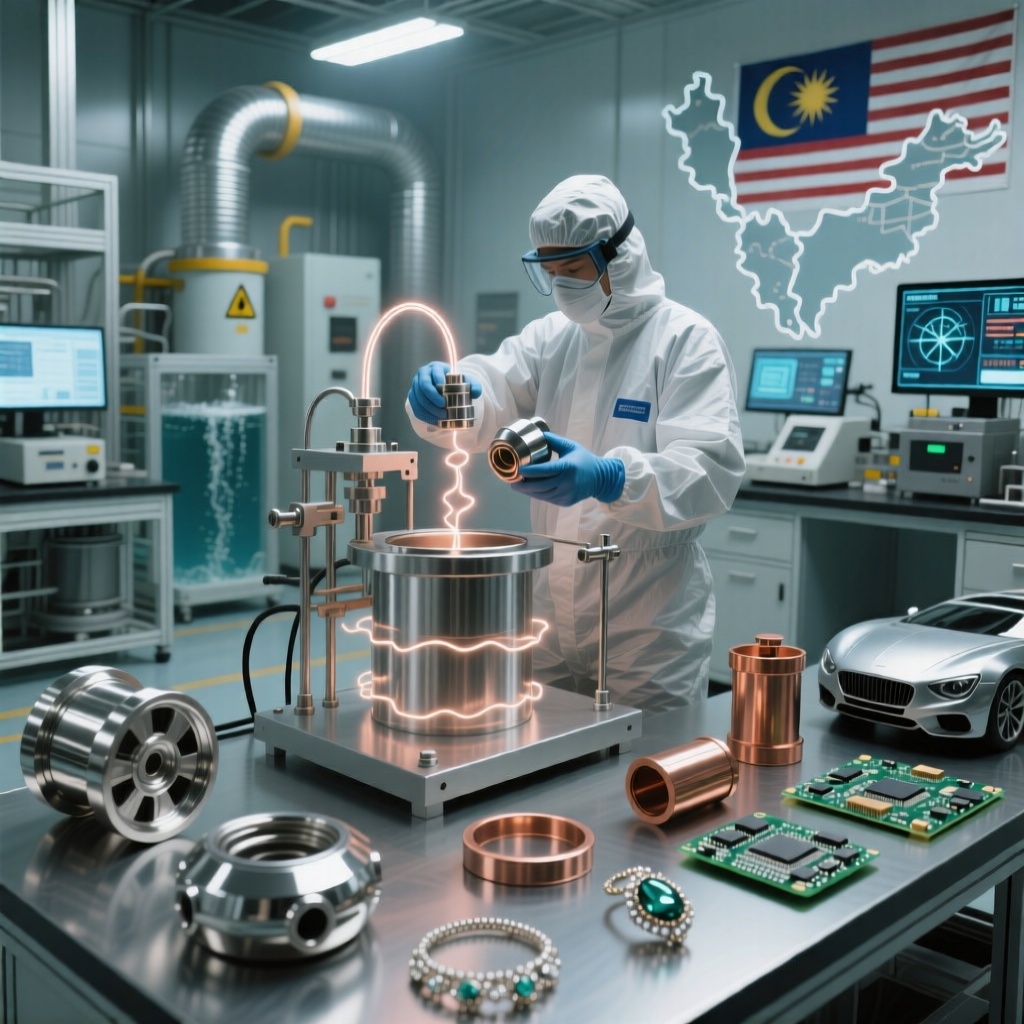Introduction to Electroplating
Electroplating is a vital metal coating technique that uses electrochemical deposition to apply a thin layer of metal onto a surface. This method enhances the appearance, corrosion resistance, electrical conductivity, and wear resistance of metal items. Ideal for engineers, manufacturers, and quality control professionals, this guide explains the fundamentals of electroplating, including its chemistry, methods, industrial applications, environmental impact, and its specific use within Malaysia’s manufacturing sector.
Electroplating Process and Chemistry
Electroplating works through electrodeposition, where a metal ion in a solution is reduced and deposited as a solid metal layer on a conductive substrate. The process requires:
- An electrolyte solution containing the metal salt (such as nickel sulfate for nickel plating)
- Two electrodes: the cathode (workpiece to be plated) and the anode (metal to dissolve)
- An electric current to drive the reaction
Chemically, metal ions migrate to the cathode, gain electrons, and form a coherent metal coating. Controlled parameters include current density, temperature, and solution pH, which affect layer thickness, adhesion, and quality.
Types of Electroplating Methods
Different industrial needs require specific plating methods:
- Rack plating: Individual parts are hung on racks for uniform coating, best for small to medium high-value items.
- Barrel plating (mass plating): Small parts are tumbled in a barrel with plating solution, suitable for bulk production but less uniform.
- Continuous plating: Used for long strips or wires, where the substrate passes through plating baths continuously.
Common metals used include nickel (corrosion resistance), chromium (hardness and shine), zinc (galvanization against rust), and copper (improved conductivity and adhesion).
Industrial Applications and Benefits of Electroplating
In manufacturing, electroplating extends product life, enhances surface properties, and enables cost-effective material substitution. Industries benefiting include automotive, electronics, aerospace, and jewelry manufacturing.
Benefits include:
- Enhanced corrosion resistance to prevent rust
- Improved electrical conductance for circuit parts
- Superior wear resistance for mechanical parts
- Decorative finishes increasing product value
Environmental and Safety Considerations
Electroplating involves hazardous chemicals and heavy metals. Proper handling, waste treatment, and air emission controls are critical for compliance with Malaysian environmental regulations. Modern plants use closed-loop systems to recycle plating baths and minimize toxic discharge. Workers must use personal protective equipment (PPE) to avoid exposure to harmful substances.
Overview of Electroplating in Malaysia’s Manufacturing Industry
Malaysia’s manufacturing sector increasingly integrates electroplating to boost product quality and competitiveness. Key sectors include electronics assembly, automotive component manufacturing, and metal fabrication. Local regulations require adherence to environmental standards, encouraging greener electroplating practices. Case studies show Malaysian firms adopting advanced rack and continuous plating techniques for higher throughput and consistent quality.
Pro Tip:
When choosing a plating method, consider the part geometry, production volume, and desired surface properties to select between rack, barrel, or continuous plating for optimal results.
This comprehensive overview of electroplating covers scientific principles, diverse industrial methods, application benefits, and environmental practices with a focus on Malaysia’s expanding manufacturing needs. It provides professionals with actionable insights to optimize their plating processes and comply with safety standards effectively.
Fukar delivers advanced metal surface finishing for global industries, specializing in electroplating and protective coatings that boost durability, cut friction, and resist corrosion. Core services include Xylan, Xylar 2, zinc flake, zinc nickel plating, electroless nickel, anodising, and passivation, backed by ISO 9001:2015 and PPG QAC certification, consultancy, testing, and reliable logistics.
Address
Fukar Sdn. Bhd.
Lot 910, Jalan Sellathevan, Batu 4, Kampung Jawa, Seksyen 36, 40470 Shah Alam, Selangor Darul Ehsan
Contact:
Tel: +603 337 21722
Mobile: +6019 352 3908

